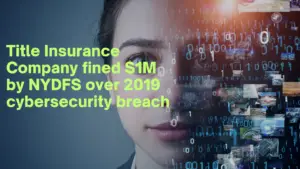At JND Consulting Group we believe there’s one thing that’s 100% certain when it comes to protecting your business data, it’s that you need to be aware of phishing emails.
First things first, what exactly is a phishing email? Picture it as a wolf in sheep’s clothing, posing as a legitimate communication to deceive unsuspecting recipients. These emails often contain malicious links, attachments, or requests for sensitive data, all disguised as a business or person you already know and trust.
And you know what they say: Knowledge is power. One of the best ways to stay safe is to stay informed. We can do that by looking at the most common phishing emails of last year.
There are three main categories of phishing themes: Major, moderate, and minor.
Major themes
The biggest category is finance-related phishing emails, making up a huge 54% of attacks. These emails often contain pretend invoices or payment requests, aiming to lure recipients into giving away financial information.
Following closely are notification phishing emails, making up 35% of attacks. These emails prey on urgency, claiming your password is about to expire or you must take some urgent action.
Moderate themes
Document and voicemail scams take center stage here, accounting for 38% and 25% of attacks respectively. These tactics involve deceptive files or messages designed to trick you into compromising your security.
Minor themes
While less common, minor phishing themes still pose a risk to people who don’t know what to look out for. These include emails related to benefits, taxes, job applications, and property.
Why should you be concerned about phishing emails? Falling victim to these scams can have serious consequences, including financial loss, data breaches, and damage to your company’s reputation. It’s essential to educate your employees about the dangers of phishing and put in place robust cyber security measures to protect your business.
Awareness and vigilance are your best defenses against phishing attacks. By staying informed, training your employees, and using strong security protocols, you can safeguard your company’s valuable assets from cyber threats.
Implementing a robust cybersecurity strategy is essential in protecting your organization from malicious phishing attacks. Regularly updating your security measures and educating your team on how to identify and respond to potential threats are key components of maintaining a secure environment. By fostering a culture of awareness and vigilance, you can significantly reduce the risks associated with phishing and enhance the overall security posture of your company.
Remember, cybersecurity is a collective effort that requires everyone to play their part in safeguarding sensitive information and preserving the integrity of your business operations.
We help businesses like yours stay safe. If you’re not 100% sure you’re fully protected… let’s talk.

Title Insurance Company fined $1M by NYDFS over 2019 cybersecurity breach
Title insurance company has agreed to pay a $1 million fine and enhance compliance measures following allegations of inadequate protection of customers’ personal data, particularly during a cybersecurity breach in 2019.

Ransomware which payment option is best? (Hint: none)
Cyber criminals are giving you more options when it comes to paying your way out of a ransomware attack. Our advice remains the same though. Find out what that advice is here.

Data Breaches Hit an All-Time High [Top Data Breaches of 2023]
At JND Consulting Group we believe the battle against cyber threats is an ongoing challenge and the threats are changing on a daily basis. Unfortunately, 2023 has proven to be a watershed year for data breaches. Data compromises have surged to an all-time high in the U.S. This is based on data from the first 9 months of the year. Meaning that numbers will only end up higher for the year.
The last data breach record was set in 2021. That year, 1,862 organizations reported data compromises. Through September of 2023, that number was already over 2,100.
